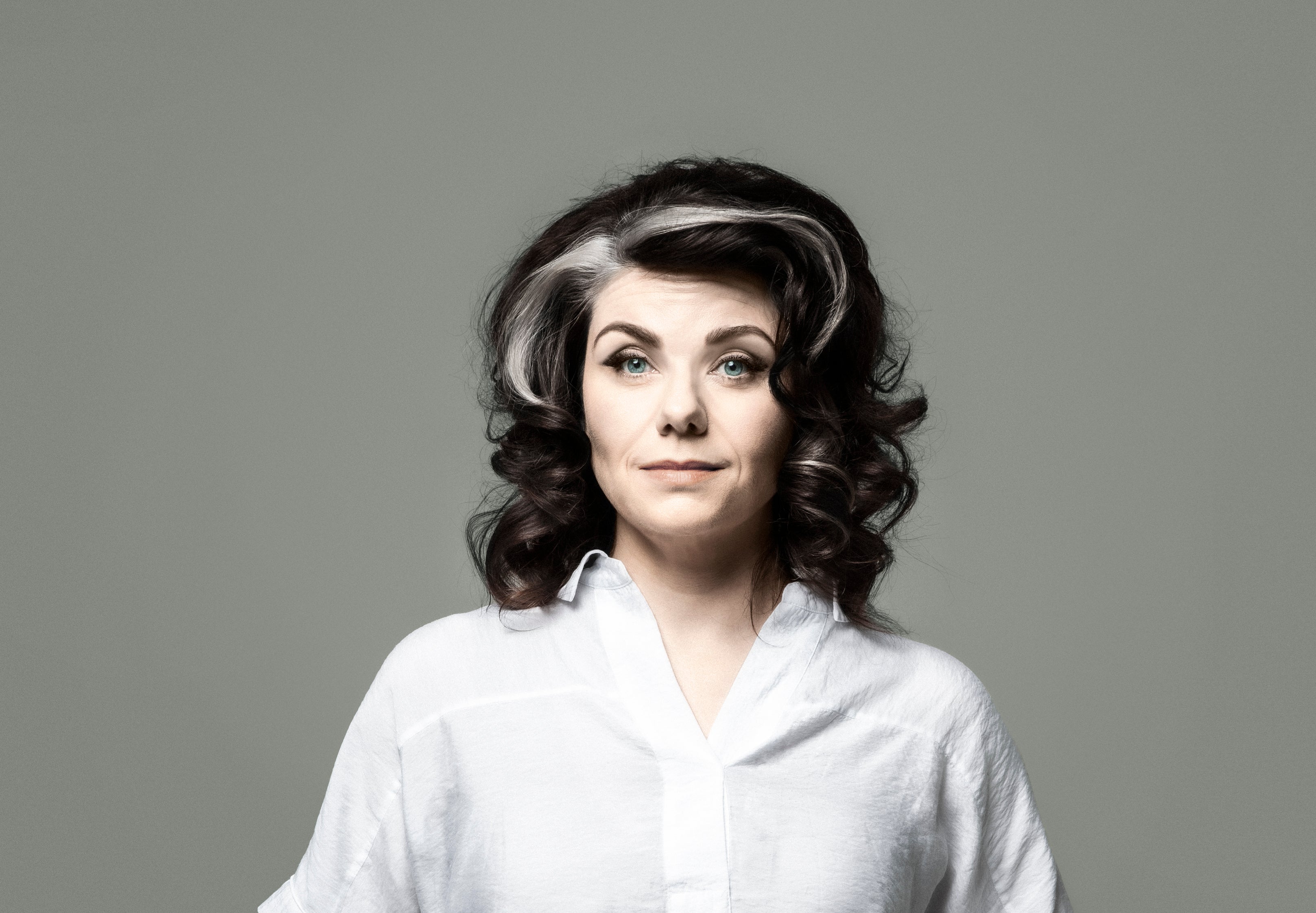Caitlin Moran: The books that changed my life
The award-winning writer reveals that the Brontës, Douglas Adams and Virginia Woolf all have a place in her heart.

Your support helps us to tell the story
From reproductive rights to climate change to Big Tech, The Independent is on the ground when the story is developing. Whether it's investigating the financials of Elon Musk's pro-Trump PAC or producing our latest documentary, 'The A Word', which shines a light on the American women fighting for reproductive rights, we know how important it is to parse out the facts from the messaging.
At such a critical moment in US history, we need reporters on the ground. Your donation allows us to keep sending journalists to speak to both sides of the story.
The Independent is trusted by Americans across the entire political spectrum. And unlike many other quality news outlets, we choose not to lock Americans out of our reporting and analysis with paywalls. We believe quality journalism should be available to everyone, paid for by those who can afford it.
Your support makes all the difference.As a bestselling, award-winning feminist writer, columnist and social commentator, Caitlin Moran is known for her candid outpourings of the agony and the ecstasy of motherhood, being a woman and other contemporary issues.
Moran, 46, who is married to music journalist Peter Paphides with whom she has two daughters, has written a clutch of bestselling books including her autobiographical tomes More Than A Woman and How To Be A Woman, and has recently curated a collection of recommended reads for the book subscription service lovemyread (lovemyread.com).
She is currently working on a new novel which is due to be published next year.
“I’m writing a sci-fi book called Husband Material for my single middle-aged girlfriends who can’t find good husbands. It’s about three women who are tech geniuses and decide to start making perfect robot husbands.”
There will be a third memoir, she anticipates.
“I think I’ll do them every 10 years. Technically it’s a useful format to tell stories of your life over 10 years, and say, this is what I learned here, or what does this mean? I intend for the last one to be called How To Die, as I slowly drift off.”
For now, though, she reflects on the books which have changed her life and the authors she has recently discovered.
How did your upbringing affect what you read?
“I was so lucky. Because I was taught at home (she grew up on a council estate in Wolverhampton and was home-schooled from the age of 11), I didn’t have to read any of the books you’re supposed to. I subconsciously only ever read female authors until I was about 20, which I think was very useful because I never got to read female characters through the male gaze.”
Who did you read as a youngster?
“The Brontë’s were my favourites. Me and some of my sisters are writers so we would constantly argue which Brontë we were. Of course, I was Charlotte and my more hysterical sister could be Emily, because she wrote Wuthering Heights. Then my sister Caz would stoically say, ‘Well, I suppose I’m Anne, then’.
“Jane Eyre was the one for me because all the books I usually read were about working class girls who need to make their way in the world who aren’t pretty, which is really important, and who are just a bit odd but still just through hard work and cheerfulness and resourcefulness manage to triumph.
“Anne Of Green Gables, Little Women and Jane Eyre were the books that made me think, ‘Maybe I will be OK’ because these girls seem to have found a way through.
What about when you got older?
“Once you pass the age of 20, I don’t think books change your life. The ones that you read when you are younger literally become part of your brain and the way you understand the world. If you can find a way to make your kids read a couple of the books that you read when you were the same age, you’ve got similar circuitry. You can say, ‘Oh, you’re being so Amy March right now!’”
Did you have any male influences?
“Yes, Douglas Adams when I discovered The Hitchhiker’s Guide To The Galaxy. They didn’t tend to have liberal, left-wing science nerd boys in Wolverhampton so when I read his book, I thought, ‘Oh! That’s the kind of man I want to find. I might have to go to London to find him, I guess.’
“When you re-read it now you realise he invented the future. The Hitchhiker’s Guide To The Galaxy is this palm-held electronic device which can translate anything and tells you everything you need to know. That’s the iPhone! And when he describes Zaphod Beeblebrox, who’s the kind of rock star president of the universe who is really dumb and causes chaos, that’s Donald Trump!”
Are there any great authors you’ve recently discovered?
“Yes, the two I’ve discovered most recently are Herman Melville who wrote Moby Dick which for years I had presumed was just a very dull book about fishing but turns out to be the gayest kaleidoscopic homoerotic burst of genius!
Some people say it’s unreadable, but I just love the fact that Herman Melville just put literally everything he knew in a book and tried to send it into the future so that people who might have been his friend could read it and say, ‘I love you retrospectively, Herman Melville!’
“Virginia Woolf also feels like a really good friend to me. I read Orlando in one sitting. A Room Of One’s Own still seems like it could be written now. Everything she writes about in it is such a brilliant feminist primer and it is written so beautifully and so elegantly.”
For more information about the book subscription service visit lovemyread.com.